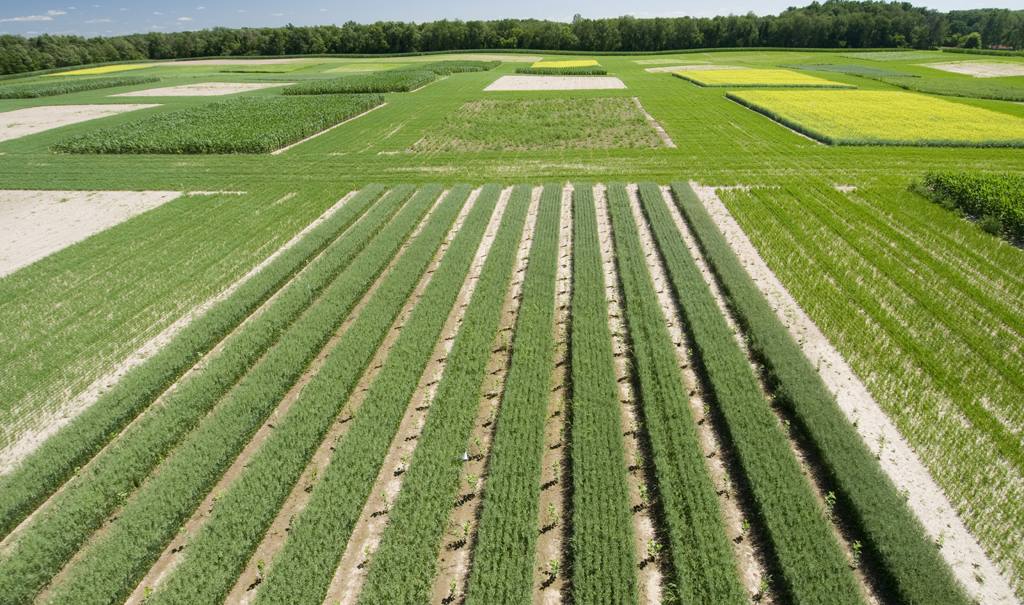Big Data Helps Farmers Adapt to Climate Variability
February 27, 2020 - MSU Today

A new Michigan State University study shines a light on how big data and digital technologies can help farmers better adapt to threats — both present and future — from a changing climate.
The study, published in Scientific Reports, is the first to precisely quantify soil and landscape features and spatial and temporal yield variations in response to climate variability. It is also the first to use big data to identify areas within individual fields where yield is unstable.
Between 2007 and 2016, the U.S. economy took an estimated $536 million economic hit because of yield variation in unstable farmland caused by climate variability across the Midwest. More than one-quarter of corn and soybean cropland in the region is unstable. Yields fluctuate between over-performing and underperforming on an annual basis.
Bruno Basso, MSU Foundation professor of earth and environmental sciences, and his postdoctoral research fellow, Rafael Martinez-Feria, set out to address the key pillars of the National Institute for Food and Agriculture’s Coordinated Agricultural Project that Basso has led since 2015.
“First, we wanted to know why — and where — crop yields varied from year to year in the corn and soybean belt of the U.S.,” Basso said. “Next, we wanted to find out if it was possible to use big data to develop and deploy climate-smart agriculture solutions to help farmers reduce cost, increase yields and limit environmental impact.”
Basso and Martinez-Feria first examined soil and discovered that alone, it could not sufficiently explain such drastic yield variations.
.
.
.
The study was funded by USDA NIFA (awards 2015-68007-23133, 2018- 67003-27406) and AgBioResearch.
“Combining big data spatially with landscape position this way could forever change the way midwestern farmers fertilize their fields, and ultimately reduce the amount of reactive nitrogen getting into our water,” said Jim Dobrowolski, NIFA national program leader.
NIFA supports an integrated approach to ensure that groundbreaking discoveries in agriculture-related sciences and technologies reach the people who can put them into practice.
“NIFA’s collaboration with the Michigan State University team has led to various papers with students and postdoctoral fellows. It supports one of its critical mandates to fund innovative agricultural science and develop the next generation of scientists,” said Scott Angle, NIFA director.
See Full Article at MSU Today.

